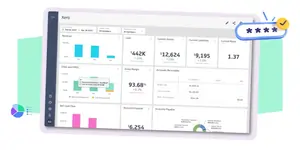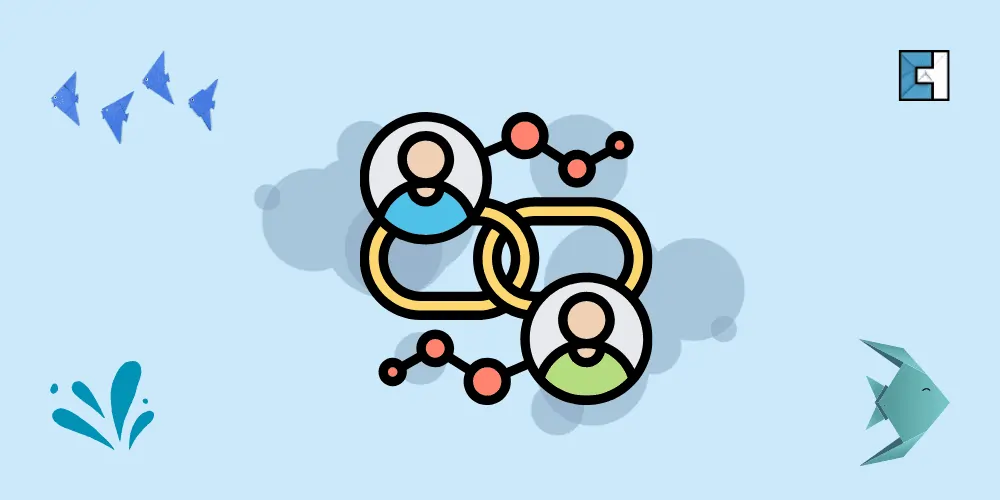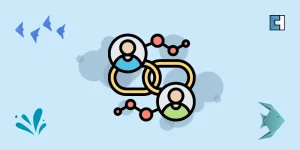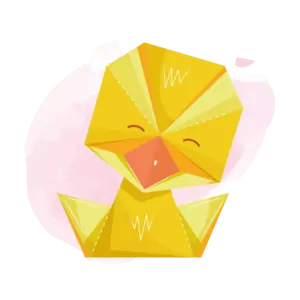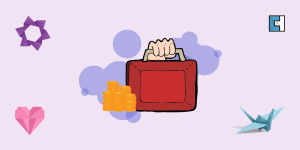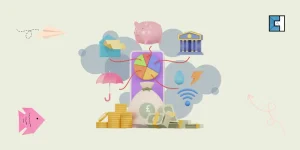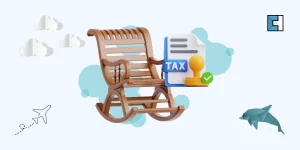Child Maintenance is an agreement between two partners on taking care of their children when they get separated or divorced. You pay for your children’s living costs to your ex-partner irrespective of whether you meet your children or not. This payment can be a private agreement between you and the other parent or done through the child maintenance service by the government to avoid contacting the other parent. Child maintenance is paid until your child reaches the age of 16 or 20 if they are enrolled in approved education or training.
Paying parent is the one who no longer participates in the day-to-day care of the child but pays for its living expenses. While the receiving parent is the one who takes care of the child, it can be the child’s mother, father, or even grandparent.
This article will help you know what factors affect the child maintenance payment and how to calculate the child maintenance payment for your children.
The Factors That Affect Child Maintenance Payment
There are a few significant factors affecting the child maintenance payment that is related to the paying parent.
- Gross weekly income
- Number of children for whom maintenance has to be paid
- Child maintenance rates
- Factors affecting the gross weekly income
- The number of children from a current spouse.
- Any social benefits received by a paying parent
- Shared Care
How To Use A Child Maintenance Calculator?
- For gross weekly income calculation, deduct the amount paid for any pension scheme, but not the income tax or national insurance contribution.
- Sort out the number of children you would be paying maintenance for – 1,2,3 or more.
- You also need to deduct private pension contributions if you are paying any.
- Determine the band your shared care falls into. It tells how much you will pay for child maintenance. The children staying for a higher number of nights over a period of a year will result in a reduced maintenance amount for a paying parent.
How Does The Income Of A Paying Parent Affect The Maintenance Amount?
By income, we mean the amount earned through employment, self-employed business, occupational pensions, or any other benefits. Gross annual income is the total income for a year before tax, and national insurance is deducted. We convert this amount into the gross weekly amount for a child maintenance payment.
Here you will see how the maintenance amount/percentage to be paid is affected by the parent’s gross weekly income.
| Band | Paying Parent’s Gross Weekly Income (£) | Number Of Children For Whom Maintenance Is Required | EmpAmount/Percentage Of Income To Be Paid |
|---|---|---|---|
| Nil Rate | Less than £7 | 1 | £0 |
| 2 | £0 | ||
| 3 0r More | £0 | ||
| Flat Rate | £7 to £100 | 1 | £7 |
| 2 | £7 | ||
| 3 or More | £7 | ||
| Reduced Rate | £100.01 to £199.99 | 1 | £7 + (17% of the amount above the flat rate) |
| 2 | £7 + (25% of the amount above the flat rate) | ||
| 3 or More | £7 + (31% of the amount above the flat rate) | ||
| Basic Rate | £200 to £800 | 1 | 12% of weekly income |
| 2 | 16% of weekly income | ||
| 3 or More | 19% of weekly income | ||
| Basic Plus Rate | £800.01 to £3000 | 1 | £96 + (9% of the amount above the basic rate) |
| 2 | £128 + (12% of the amount above the basic rate) | ||
| 3 or More | £152 + (15% of the amount above the basic rate) | ||
| Unknown Rate | Weekly income is unknown | 1 | £38 |
| 2 | £51 | ||
| 3 or More | £64 |
These six rate bands are described below.
Nil Rate
If the paying parent’s gross weekly income is Less than £7, this lies in the nil rate band, meaning that the paying parent does not have to pay any amount for child maintenance regardless of the number of children for which maintenance is required. Nil rate is also applied when the paying parent is 16-19 years old and receives jobseeker allowance, income-related support, and other allowance or stays at the prison or in another home care facility.
Flat Rate
If the paying parent’s gross weekly income is between £7 and £100, then a flat rate is applied, which means that the paying parent only has to pay £7 for child maintenance regardless of the number of children.
Reduced Rate
If the paying parent’s gross weekly income is between £100 and £199.9, then a reduced rate is applied. If there is a single child for whom maintenance has to be paid, then the paying parent has to pay £7 plus 17% of the amount above the flat rate. Moreover, If the children are two, then the amount to be paid becomes £7 plus 25% of the amount above the flat rate. And for three or more children it is £7 plus 31% of the amount above the flat rate.
Basic Rate
If the gross income of the paying parent lies between £200 and £800, then the basic rate is applied. This implies that 12% of the weekly income has to be paid for the maintenance of one child, 16% for two children, and 19% for three or more children.
Basic Plus Rate
If the gross income of the paying parent is between £800 and £3000, then we apply the basic plus rate. This makes the paying parent pay £96 + 9% of the amount above the basic rate for the maintenance of one child, £128 + 12% of the amount above the basic rate for two children, and £152 + 15% of the amount above the basic rate for three or more children. If the paying parent’s weekly income is more than £3000, then the receiving parent can go to court for more financial support for children.
Unknown Rate
This is the case when the income of the paying parent cannot be determined. This might be due to various reasons – the paying parent has not submitted his returns, the employer has not shared payment details. In such a case the paying parent is liable to pay £38 for the maintenance of one child, £51 for two, and £64 for three children till the actual income is known. If the child maintenance rate is more after figuring out the paying parent’s income, then the balance is to be paid later along with the new rates.
Shared Care
If both the parents have agreed upon the shared care of the children, then it reduces the amount of maintenance for the paying parent. It depends upon the number of nights children stay with the paying parent.
| Number Of Nights Of Shared Care Each Year | Reduction To Child Maintenance (For Each Child) |
|---|---|
| (less than once a week/less than 52 a year) | No reduction |
| ( 1 to 2 nights a week/52 to 103 a year) | 1/7th |
| ( 2 to 3 nights a week/104 to 155 a year) | 2/7th |
| (3 nights a week/156 to 174 a year) | 3/7th |
| (more than 3 nights a week/175 or more a year) | ½ (50%) plus an extra £7 a week reduction for each child in this band |
- If the number of shared care stays is less than once a week, there will be no reduction in the maintenance payment.
- If children stay 1-2 nights a week, or 52 days a year, you can reduce 1/7th of the maintenance amount for each child under shared care.
- In case, children stay 2-3 nights a week, or 104-155 days a year, you can reduce 2/7th of the maintenance amount for each child under shared care.
- If children stay three nights a week, or 156-174 days a year, then 3/7th of the maintenance amount can be reduced for each child under shared care.
- In case, children stay more than three nights a week or 175 days or more a year, there will be 50% plus with an extra reduction of £7 a week for each child in this band.
The parents need to inform the agency in advance about the shared care and any changes in the number of days of shared care to reduce maintenance payments according to the band you fall in and to help the agency make adjustments accordingly.
Having Other Children In The Household
| Other Children | Reduction percentage |
|---|---|
| 1 | 11% |
| 2 | 14% |
| 3 or more | 16% |
If the paying parent has other children in the household or pays for children from any other partner, then a certain reduction in the gross weekly income is applied. The reduction depends upon the number of other children.
The reduction is 11% for one other child, 14% for two other children, and 16% for three other children. This reduction is made in the weekly gross income, making the paying parent pay a reduced amount of maintenance for the children.
Also, this only applies if the paying parent’s income is in the range of £200 to £3000.
When Does The Payment Stop?
- When the children reach 16 years of age or 20 years in case they are enrolled in full-time education up to A level or equivalent.
- or When the income of the paying parent is less than £7 a week.
- When the age of the paying parent is 16 years or less.
- When the paying parent is staying in prison or in some home care facility.
Child Maintenance Calculation – An Example
Sam pays for the maintenance of two children while his annual income is £100,000. Sam and his ex-partner have agreed to share the care of their two kids. So Leo stays 100 nights every year and Jack stays 160 nights with Sam. Sam has three other children who stay with him and he also pays £5000 towards his private pension.
Step-1 Income
As per Sam’s claim, his current gross annual income is £60,000. Since the difference between Sam’s recent claim and the HMRC record is more than 25%. So we consider the lower of the amount.
Step-2 Factors That Affect Income
- Pension Reduction
Gross annual becomes £55,000 when £5000 is deducted. For weekly conversion, this amount is divided by 365 and multiplied by 7. After calculation, we get the gross weekly income of £1054.79.
- Reduction For Other Children
Sam has three other children who are living with him. For three children, we exercise 16% of the reduction. 16% of £1054.7 is 168.76; when deducted, the gross weekly income becomes £886.03.
The gross weekly income of £886.03 falls under the basic plus rate.
Step-3 Number Of Children Who Requires Maintenance Payment:
Sam has to pay maintenance for two children.
Step-4 Weekly Maintenance Rate:
Since Sam’s income falls under the basic plus bracket, the rate involved for two children in this band is 12%. So, 12% of the weekly gross income becomes £105.96.
Step-5 Shared Care
£105.96. is equally divided between Leo and Jack which comes out to £52.98 for each.
- Deduction From Leo’s Maintenance Due To Shared Care
Since Leo stays for 100 nights with Sam, this leads to a deduction of 1/7th of the £52.98, which is £7.56.
- Deduction From Jack’s Maintenance Due To Shared Care
Since Jack stays for 160 nights with Sam, based on the number of nights, we make a deduction of 3/7th of the £52.98, which is £22.7.
So, the sum of £7.56 and £22.7 is deducted from £105.96. When subtracted, it becomes £75.7. Finally, Sam has to pay £75.7 for the maintenance of two children after all the factors are considered and adjusted.
How To Contact the Child Maintenance Service?
Call the Child Maintenance Service
Telephone: 0800 171 2345
Welsh language: 0800 232 1979
Monday to Friday 8.30 am to 3.30 pm
You Can Write To The Child Maintenance Service
Child Maintenance Service (England, Scotland, Wales cases)
Child Maintenance Service 21
Mail Handling Site A
Wolverhampton
WV98 2BU
Child Maintenance Service (Northern Ireland cases)
Child Maintenance Service 24
Mail Handling Site A
Wolverhampton
WV98 2BU
Conclusion
We hope you found this blog very helpful for your child maintenance calculation. If you still need to settle matters with your ex-partner and need guidance on how to calculate child maintenance, Clear House Accountants can do it more effectively. Just call for any kind of advice on child maintenance.
Additional Resources

















